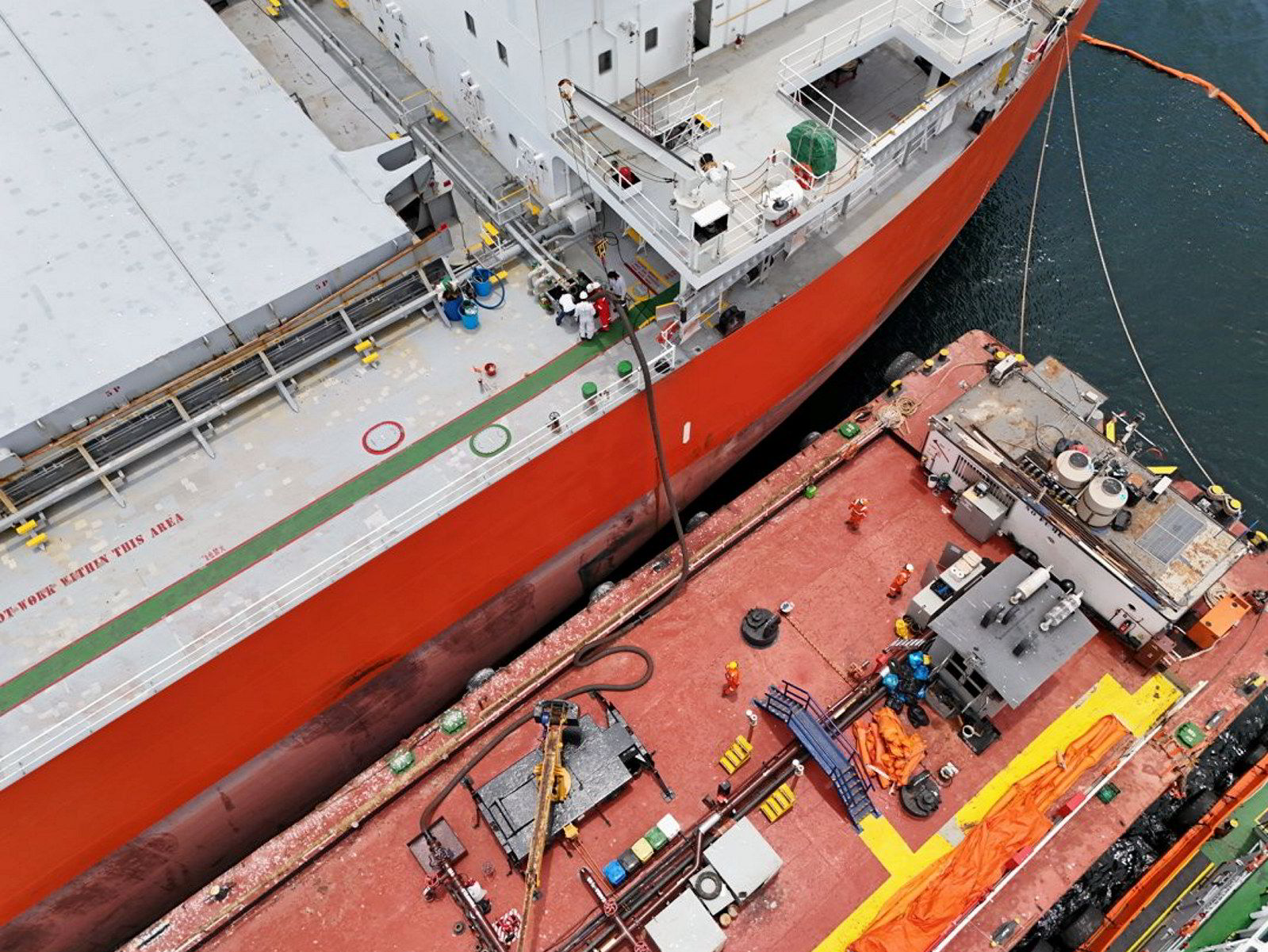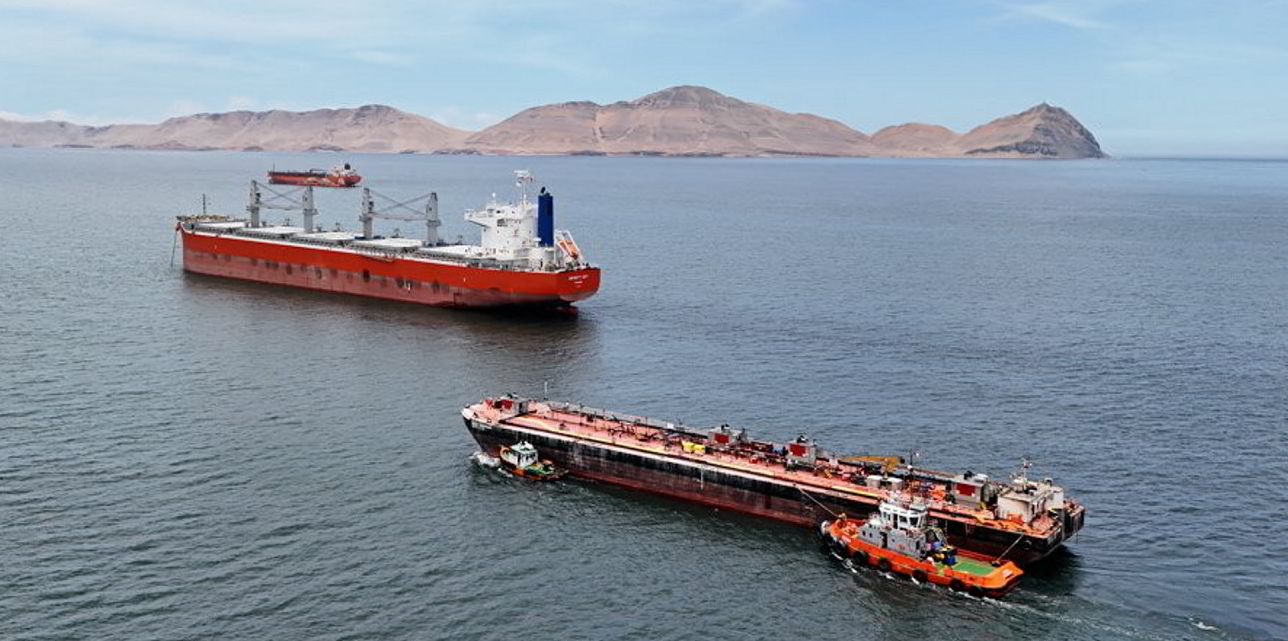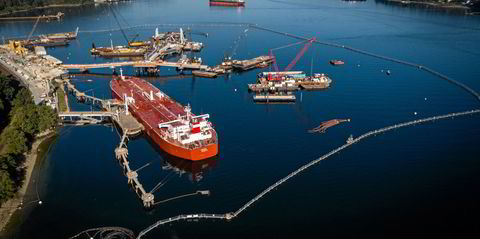Cargill increased its marine biofuels sales in 2023, but the commodities giant is expecting that growth to slow this year.
Undeterred, its Cargill Marine Fuels unit is aiming to grow its global reach. The outfit carried out its first biofuels loading off Peru for a voyage by mining giant BHP in February.
Cargill Marine Fuels head Olivier Josse told TradeWinds that the company and its partners sold 225,000 tonnes of biofuels on a B30-equivalent basis, a reference to a blend that is 30% biofuels. That is a significant share of a total marine biodiesel market of 1.3m to 1.5m last year.

The company said it and its partners lifted 180,000 tonnes of biofuel globally in 2023 in Singapore and the “ARA” ports of Amsterdam, Rotterdam and Antwerp.
TradeWinds previously reported that in 2022, Cargill lifted 23,000 tonnes of biofuels, a figure that did not include partnerships and joint ventures such as Pure Marine Fuels.
“We were thinking that ’24 will still be a bigger number — bigger demand from the customers worldwide — versus ’23,” Josse told TradeWinds.
“It appears that it’s going to be probably the same, but not more, globally. The container lines and the car carriers, which have been at the front of taking biofuel early versus the dry or the wet segments, are not giving a sign that they will take much more than what they did last year.”
One key reason for the pause in biofuels demand growth is that prices for carbon in the European Union’s Emissions Trading System have been low, falling from a peak of €100 ($107) per tonne of CO2 last year to just over €50 in February this year.
That means there is little economic incentive to pay for biofuels, which are more expensive than conventional bunker fuels.
Josse said industries that are shipping’s end-users are also much more focused on direct carbon emissions, rather than indirect greenhouse gas pollution known as Scope 3.
Cargill began offering biofuels based on fatty acid methyl ester (FAME), produced from biological waste streams, in 2021 for ships travelling between Singapore and Europe, in part with the volumes from its 400,000 tonnes per year biodiesel refinery in Ghent, Belgium.

By the following year, as Josse explained in an early 2023 episode of TradeWinds’ Green Seas podcast, the company shifted from trialling biofuels to scaling up the business, working with partners that physically deliver the volumes.
Last year, Cargill Marine Fuels sold 125,000 tonnes of B24 blend, which has 24% FAME content, in Singapore. The division of Geneva-based vessel operator Cargill Ocean Transportation also lifted 25,000 tonnes in Dutch and Belgian ports. Cargill also sells B30 and B100 biofuel blends, which have higher concentrations.
“The model works,” Josse told TradeWinds. “I think the customers, which were happy to take from us the blended biofuel, were also trusting the Cargill origination capacity, the network and the selection of the suppliers in China.”
Cargill’s fleet of chartered vessels used 16,300 tonnes of B24 and B30 biofuel blends in 2023, which is roughly even with 2022.
As it continues to look for opportunities to scale up the programme, the company’s next phase is to expand to a wider footprint.

“We have a model which we use in ARA with Singapore, and we know we can replicate that model in different places of the world,” he said.
As TradeWinds has reported, the company made the first-ever delivery of marine biofuels on South America’s west coast, supplying 510 tonnes of bunkers to customer BHP.
Cargill worked with partners Monjasa and Famoil to provide the B30 blend, which contained 153 tonnes of used cooking oil methyl ester biofuel sourced from Peru, for a voyage to carry copper concentrates to China.
Josse said the voyage emerged out of Cargill’s efforts to help its customers tackle Scope 3 emissions and its existing biofuels supply relationship with BHP.
Peru is also a prospect for expansion of the Cargill marine biofuels business.
“Now the next step for us is to go a bit deeper into what is the capacity to originate waste product in that country,” Josse said, adding that Cargill will also have to figure out which industries shipping will be competing with to get its hands on the bio feedstock.
China also has potential, if regulatory changes are made to clear customs barriers for biofuels.
More regulation is on the horizon that could give biofuels demand a lift, particularly the FuelEU Maritime law that enters force next year and puts gradually decreasing caps on shipping’s carbon intensity.
“It will make sense economically,” he said of biofuels in 2025. “It will be probably slightly cheaper than paying the fine.”
Read more
- Ciner extends $900m bulker newbuilding drive backed by Chinese war chest
- European grain trades are being redrawn as farmers go straight to market
- Wind revolution sees British funding shift focus from shipbuilding to cleantech
- Huaxia Financial Leasing inks ultramax bulkers at New Dayang Shipbuilding
- ZeroNorth opens up in Japan to spearhead Asian sustainability drive





